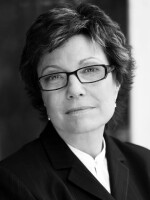Secretary of State Condoleezza Rice says the Bush administration will not seek help from Iran and Syria as part of its efforts to improve conditions in Iraq, as was recommended last week by the Iraq Study Group.
So it was over State Department reservations that a U.S. senator from Florida talked with Syria's president -- and asked him to do more to help stabilize Iraq. President Bush says he won't be rushed in reviewing the U.S. strategy in Iraq.
But others are rushing to embrace the Iraq Study Group's diplomatic ideas.
Syria knows first-hand about instability in Iraq from the rising tide of Iraqi refugees that brings an estimated 40,000 a month over the border. So many Iraqis have arrived that they have changed the character of entire neighborhoods in Damascus. One street on the outskirts of the capital is now called "Iraqi Circle."
Iraq and Syria resumed full diplomatic relations last week, after a break of more than two decades. The new Iraqi embassy opened in a high priced Damascus neighborhood. At the official ceremony, Syria's foreign minister pledged to support stability in Iraq, and to drop its insistence on a time table for us troop withdrawal.
All this comes as the Bush administration is being urged to open talks with Syria on ways to stabilize Iraq. But the Syrians aren't waiting for Washington. They have opened an Iraq initiative of their own, inviting European and American politicians to discuss the matter.
And some Americans are already coming to Syria. One, Sen. Bill Nelson (D-FL), met with the Syria's President Bashar al-Assad this week; three more are expected next week. And they all want to know the same thing: whether Syria can help deliver stability in Iraq.
Syria and the Bush administration say they have the same goals in Iraq: a stable country; freedom from violence; a place where refugees can go home. But opening talks after so many bitter years will not be easy without dramatic change in Washington or Damascus.
Copyright 2022 NPR. To see more, visit https://www.npr.org. 9(MDAzMjM2NDYzMDEyMzc1Njk5NjAxNzY3OQ001))






